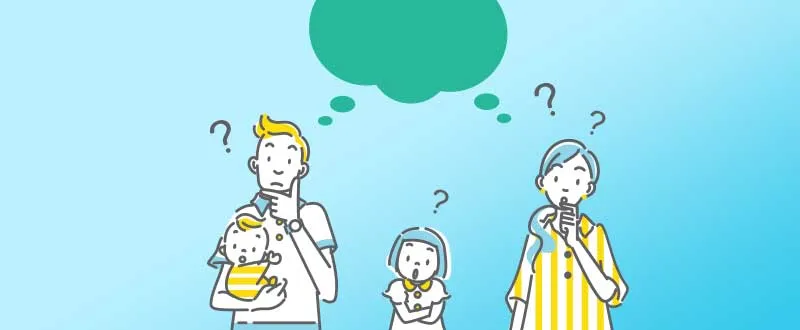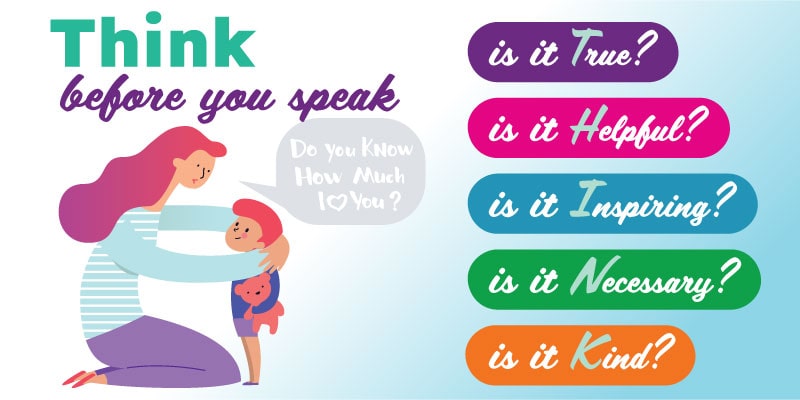Stop Teaching Your Kids Who’s the Good Guy & Who’s the Bad Guy
A child of divorce gives tips to co-parents to help them avoid making the kids think there is a “good guy” and a “bad guy” after separation.
- 4 min read
- child development
- divorce
- guest author

At almost 25-years-old, I am still piecing together new things about my parents as individuals and how they operated as a couple. You see, I grew up thinking there was a good guy and a bad guy in the divorce. That’s what I was taught by one parent.
I knew my parents as a couple for only eight years of my life. When they were together, there was a lot of fear in the house, which led to my brother and I being pros at walking on eggshells. When they were together, there seemed to be an obvious “bad guy.” However, that didn’t justify the other parent bashing them post-divorce.
When my brother and I had to go to the “bad guy’s” house, it was hard, but they were still my parent. I wish my other parent would have reminded me of that truth instead of comforting my sadness and also adding to it by saying what they didn’t like about that parent. Here is a dialogue example for reference:
YES:
“Awww I don’t want to go to Parent 1’s House! It’s so boring there and they are mean!”- Child
“I’m so sorry you don’t want to go. I understand they can be mean sometimes, but I promise that they love you. Remember that they are your Parent 1! They desire a relationship with you even if it looks different than what you have with me.” —Parent 2
NO:
“Awww I don’t want to go to Parent 1’s House! It’s so boring there and they are mean!”- Child
“I’m so sorry you don’t want to go. They are mean! Remember when they used to live here and yell at me? That was the worst. I’m so glad I don’t see them anymore. I am so sorry you have to go there, they are awful! It’s only for a few days and then you’ll be back with me, the parent who really understands you.” —Parent 2
Remember, the kids don’t get to divorce their mom or dad. It was the worst when one of my parents would say, “I’m so glad I’m not with your dad/mom anymore, they were terrible”. I would think to myself, “Oh thanks a lot, now I have to go there for the next week. I don’t get the “get out of jail free” card like you do.” I often wonder what my perception would have been of my parents growing up if I didn’t hear the opinions coming from the other parent.
So parents, here’s how you can change that for your kids: think before you speak! I’m going to share a graphic that I used to use with my elementary school kids that adults can use too:

My only critique to this is the “is it true” part. What you’re saying may be the truth, but if it’s not helpful, inspiring, necessary, or kind– then it’s not worth it for your kids to know. As your kids get older, the truth will come out. In my case, I thought I knew the truth in 7th grade, but as I grew, that truth got more complex and revealed a lot more about both parents, not just the perceived “bad guy”.
In my book, Dear Parents: Notes From a Child of Divorce, I always end each chapter with a “Let’s Get Practical” section.
So here’s my “Let’s Get Practical” section for this topic:
Ask yourself:
- Does what I’m about to say pass the THINK test?
- Could this conversation just be for me to get stuff off of my chest? If so, call a friend or family member or counselor.
For kid’s anxiety:
- Show them EFT tapping therapy (might want to get a counselor for this one. My counselor taught me this exercise).
- Give them a journal to write all of their thoughts and worries into.
- Show them breathing exercises that they can practice.
- Teach them the mantra “this won’t last forever” (that one helped me a lot).
- Have them write down the things they love about both parents or things that they can get at one house, that they can’t get at another.
- Ex: I can go out to eat for every meal at Dad’s house, but at Mom’s house I get my favorite home cooked meals. Both were fun for me!
Overall, just remember that whether you like this or not, your kid is half of your co-parent. When you speak poorly about them, it can translate to being a reflection of your child. Your kids didn’t ask to go through divorce, and they don’t get to divorce this person. They have to live in a relationship with both of you for the rest of their lives (that is, if they choose to continue the relationship past 18). Let your child form their own opinion of both parents. You can always comfort them, but never take the bait and turn it into a bashing session of your co-parent.
I hope this makes sense to you. Remember that you’re only human, and you will mess up. But as long as you repair well with your child, admit your mistakes, and ask for forgiveness, there is hope. I wish you well. You’ve got this!